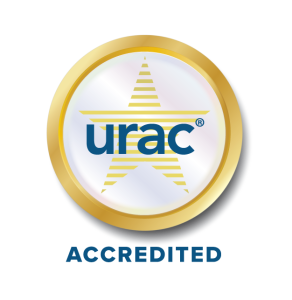At 16 months old, Xavier is into everything that makes noise and moves. He’s also a big fan of books that play nursery rhymes and his mother’s home cooking! His mother Davida has become quite the chef, watching YouTube videos to make new food for Xavier and her family.
Xavier’s doctors describe him as a miracle baby, having survived a traumatic brain injury at birth that took four months to uncover. While the first 16 months of Xavier’s life have not been easy, with doctor’s visits almost every day to address his complex medical needs (i.e., seizure disorder, GERD, torticollis, plagiocephaly, eczema, and food allergies), his mom says she gets through it with prayer. “Prayer has been a resounding force my strength. At 2:00 a.m. when your son has a seizure, prayer gets you through it. I also journal a lot and contribute to motivation groups for moms,” said Davida.
Davida says caring for Xavier is very busy, with numerous therapies for his development (physical, occupational and speech) and specialty visits for tests and exams. As a mother of two children and with Xavier’s father in the military, Davida has had to learn how to be effective with time management. One of the biggest challenge Xavier’s family faces is fitting in all of Xavier’s medical appointments on top of caring for their 10-year-old daughter, Amber who is active in school choir and other activities. “We schedule our life and our days around Xavier’s healthcare. It’s difficult, but having a routine is key,” says Davida.
When you have a child with complex medical needs, you want the very best care for your child. Sometimes this means having to travel to specialists outside of your local community, including out of state. Xavier’s family has had to travel numerous times to Children’s National Hospital in D.C. and Children’s Hospital of Philadelphia (CHOP) to see a multitude of specialists. “It isn’t always easy, but I’m willing to travel longer distances to get to a preferred provider,” says Davida.
Davida and her family are so grateful they were referred to the Rare and Expensive Case Management (REM) Program when Xavier was eight months old. Prior to enrolling in the REM Program, Xavier’s specialists were in many different insurance networks and states. The cost of care was a burden, with constant out-of-pocket copays. Having enrolled in the REM Program, Xavier and his family now have access to more providers in network and are able to afford the cost of Xavier’s care.
With the REM Program, Xavier and his family have access to a Clinical Care Coordinator. Davida states, her coordinator Mary is very considerate and responsive, “she’s always helping and lifting our load. Mary helps us with a lot with completing paperwork and locating resources for Xavier, including hospital grade items such as a weighted wagon, orthoptic shoes, and a pelvic stabilizing walker to help Xavier learn to walk.” Knowing the needs of the family and with the assistance of The Coordinating Center’s Family Resource Fund, Mary was also able to help his family purchase an Abiie highchair, which will grow with Xavier as he gets older. “Mary is so understanding of our situation and our family’s needs. We are incredibly grateful to her and The Coordinating Center,” said Davida.
Davida’s advice for someone considering services from The Coordinating Center is to pursue it. She says, “you don’t know that you don’t have something until you get it and realize it has a huge significant on your life. At first sight it was frustrating because having to doing paperwork and meeting more people and should I add another thing to the pot. It’s a road map almost like Rosetta stone (like going to another country and not knowing the language) for understanding and learning what you don’t know.”









